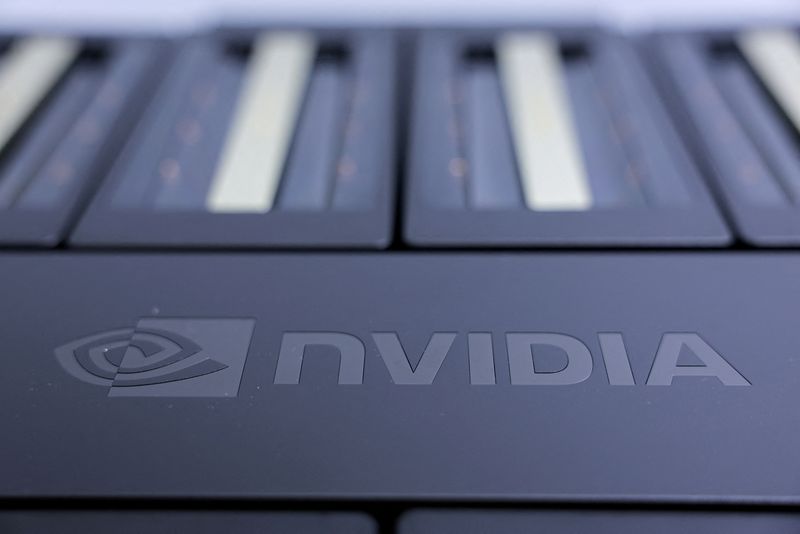By Jody Godoy and Max A. Cherney
(Reuters) - U.S. progressive groups and Democratic Senator Elizabeth Warren pressed the Department of Justice to investigate Nvidia (NASDAQ:NVDA) over competition concerns, citing the company's dominance of the market for the chips driving the artificial-intelligence boom.
Demand Progress and nine other groups wrote a letter this week urging Department of Justice antitrust chief Jonathan Kanter to probe business practices at Nvidia, whose market value hit $3 trillion this summer on demand for chips able to run the complex models behind generative AI.
The groups, which oppose monopolies and promote government oversight of tech companies, among other issues, took aim at Nvidia's bundling of software and hardware, a practice that French antitrust enforcers have flagged as they prepare to bring charges.
"This aggressively proprietary approach, which is strongly contrary to industry norms about collaboration and interoperability, acts to lock in customers and stifles innovation," the groups wrote.
In June, Reuters reported a deal was reached among U.S. regulators that directs the Justice Department to oversee potential antitrust probes into Nvidia, while the Federal Trade Commission is looking at Microsoft (NASDAQ:MSFT) and OpenAI.
An Nvidia spokesperson said the company spent billions of dollars developing AI-capable computing technology before demand existed, and is "committed to opening new markets and growth opportunities for our partner ecosystem."
"Regulators need not be concerned, as we scrupulously adhere to all laws and ensure that NVIDIA is openly available in every cloud and on-prem for every enterprise," the spokesperson said. "We'll continue to support aspiring innovators in every industry and market and are happy to provide any information regulators need."
Nvidia has roughly 80% of the AI chip market, including the custom AI processors made by cloud computing companies like Google (NASDAQ:GOOGL), Microsoft and Amazon.com (NASDAQ:AMZN). The chips made by the cloud giants are not available for sale themselves but typically rented through each platform.
Excluding the cloud providers' chips, Nvidia achieved nearly 100% market share. That domination helps the company report gross margins between 70% and 80%.
Warren, a U.S. senator from Massachusetts, expressed concerns about Nvidia's control of the market in a statement to Reuters.
"Allowing a single company to effectively be the gatekeeper for the world's AI future is dangerous and poses dire economic risks. The DOJ is right to investigate Nvidia's anticompetitive practices," she said.
A spokesperson for the Department of Justice declined to comment.
Kanter said in an interview on CNBC on Friday, without discussing Nvidia specifically, that antitrust enforcers are concerned about areas where there are bottlenecks that companies could take advantage of to exclude rivals.

"We want a world where, one, there is room for investment and development and growth into new rivals and technologies," he said.
Last year, Reuters reported that investments in the semiconductor industry were down considerably in the face of Nvidia's overwhelming market share.